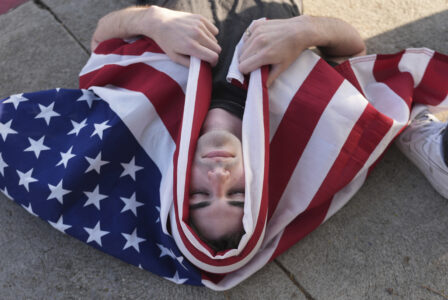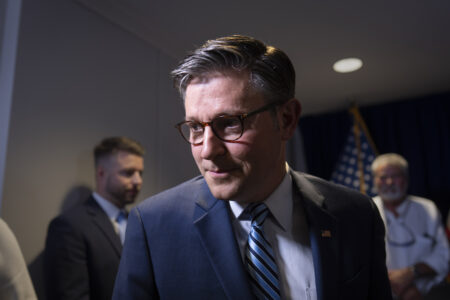Nashua public health nurses conduct contact tracing

City of Nashua public health nurses Flavia Martin is leading a group of nurses conducting contact tracing for COVID-19.
NASHUA – City of Nashua public health nurses Flavia Martin, Sascha Potzka, and Patricia Glastetter hosted a Zoom meeting last week with The Telegraph to discuss their new roles since the onset of the COVID-19 epidemic, contact tracing those who might have come in contact with a person who has tested positive for COVID-19.
“We have many different programs,” Martin said. “So, while we all have specific programs that we work under, we’re all a team and we all do the investigations together.”
Glastetter said that the team has been working remotely since the city buildings closed in mid-March.
“We are doing the contact tracing disease investigation,” Glastetter said. “Sometimes we are out on the streets.
Sascha was just out looking for a positive person out on the street, so sometimes, we are not so remote. And what we’re trying to do is mitigate the virus and prevent people from giving it to their friends.”
Potzka is the point person for S.T.D, hepatitis-C and H.I.V tracing and has experience doing the hepatitis-C investigations and had assisted Martin during the hepatitis-A outbreak.
“Contact tracing isn’t new to us,” Glastetter said. “We do it with other communicable diseases.”
The nurses said case investigation and contact tracing are skills that have been around for a long time in public health.
“When you have somebody with measles, it works the same way,” Martin explained. “Any communicable disease requires contact tracing. And by shifting a little bit, to the new pandemic and what we know, we applied our skills to this new disease.”
As much as the team knew many things about previous diseases, there was still no medical textbook to direct them in their investigations specifically for individuals who contracted the coronavirus and whom they may have been in contact with, such as co-workers or family members.
“I was definitely very nervous at the beginning when I started doing the investigations,” Potzka said. “What if I didn’t know something? But because we were on the frontlines studying everything we could right away, taking all the information we received from the state, and learning everything ahead of the public, I was able to know more than what I thought I did.”
Glastetter agreed, adding that COVID-19 was a “rolling target,” and as the team moved forward, they gleaned as much information from the new investigations and applied their knowledge from other communicable diseases to the forefront of this health crisis.
“We spent many long days and nights learning about this,” Glastetter said. “Flavia has been our point person with the state, as information is handed down from the Centers for Disease Control, to the state and down to Flavia. She disseminates that information out to us very quickly so that we can provide the public with the proper info and educate the public as well.”
The team works with identifying people who have COVID-19 and then almost follow the steps from point to point.
“We look at people who have tested positive for COVID-19, and we identify their contacts, monitor their symptoms and provide them with resources.” Martin explained. “We do speak with everyone who tests positive for Nashua. We conduct our contact tracing. These are daily phone calls to many, many people.”
The City of Nashua’s public health nurses work seven days a week and are on-call 24/7.
Their jobs also entail disease outbreaks, such as those in long-term care facilities.
“There are also outbreaks at daycare centers,” Martin said. “As well as businesses and workplaces. We investigate every single report of COVID.”
The boundaries limit the team to being regional, so they monitor the Greater Nashua health region. Martin said they focus their disease investigation to Nashua residents. In terms of numbers, the amount of people that one person may have been in contact with can be staggering.
“As things start to open and people are going back to work, we’re seeing those numbers increase more and more,” Glastetter said. “Because they are either asymptomatic and don’t recognize that they’re positive; they’ve gone to work, and of course, exposed their coworkers; or they’ve taken public transportation or gone to the mall. It can branch out pretty widely.”
After July 4, the numbers of individuals that could be traced back to one positive case also grew.
“People went away, went to BBQs, and stuff like that,” Potzka said. “That seems to be when a lot of our contacts increased. We had one person with 30 contacts because they exposed a lot of people that weekend.”
When you consider new coverage of masses of people at pool parties in Missouri, or people packed into bars and clubs, Nashua has not seen those mass numbers and hopefully won’t.
“Not that large, that’s true,” Martin said. “The largest numbers we’ve seen have been at a private party, in somebody’s home. So, if you had someone very symptomatic and they are grabbing drinks from the same cooler, eating from the same table or sharing the same rest room, we’re talking about an exposure to everyone at that event.”
Yes, grabbing a drink from the same cooler can be risky, if the last person to reach their hand into that cooler was positive and coughed or sneezed into their hand.
“We don’t know all the limitations,” Martin said.
The team agreed that people in New Hampshire have been behaving well, unlike the massive amount of cases seen in other states across the country.
“When you look at all the data,” Martin said, “New Hampshire has really great numbers.”
Without a question, the team expects that they’ll be doing this for a long time.
“Messaging was key to the success we have in Nashua as a whole,” Martin said. “Nicole Viau, health promotion and communication specialist for the city of Nashua, was instrumental in getting that messaging out to everyone within our region, which expands from Pelham to Peterborough.”
The team also said that passing a mask ordinance was key to fighting the unknowns of the coronavirus.
“I know there are people on both sides of the issue,” Martin said. “Some people hate wearing them, and others wish these people would just get on board. But that source control has been instrumental in keeping our numbers down if you compare that to Manchester or other areas.”



